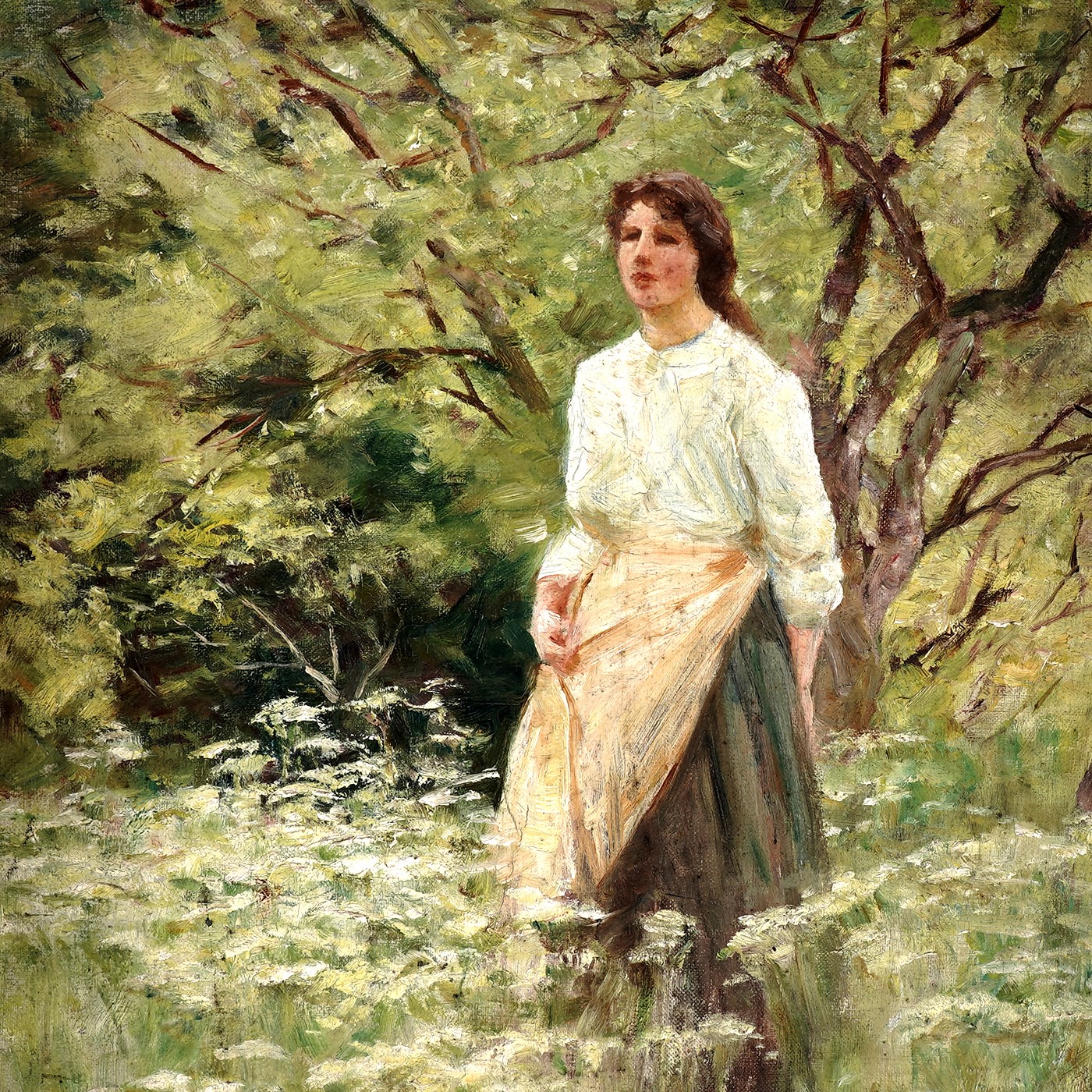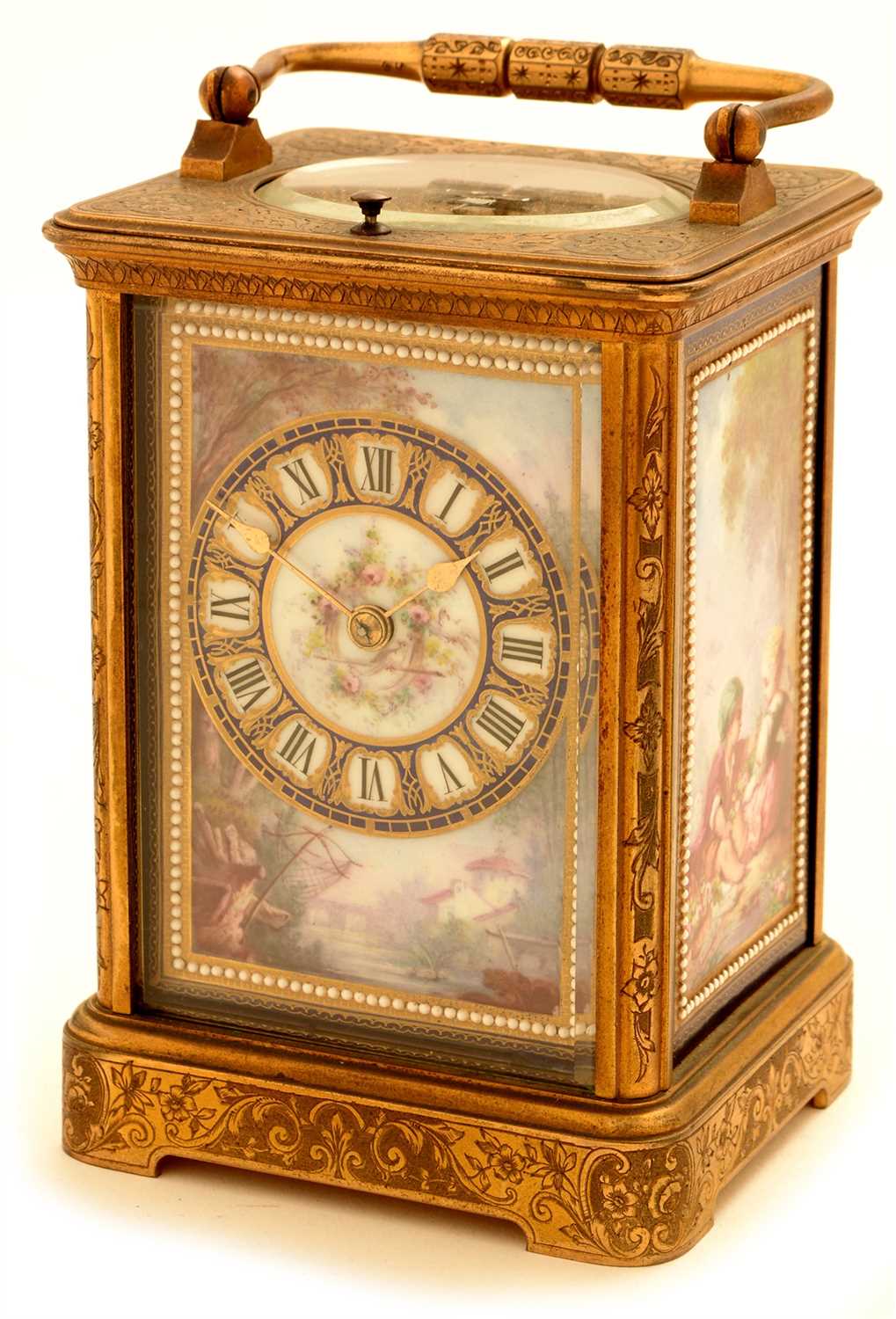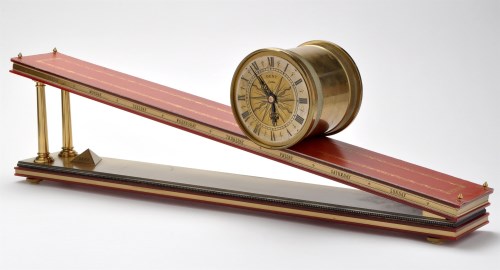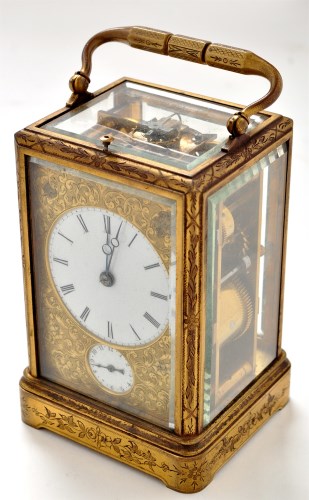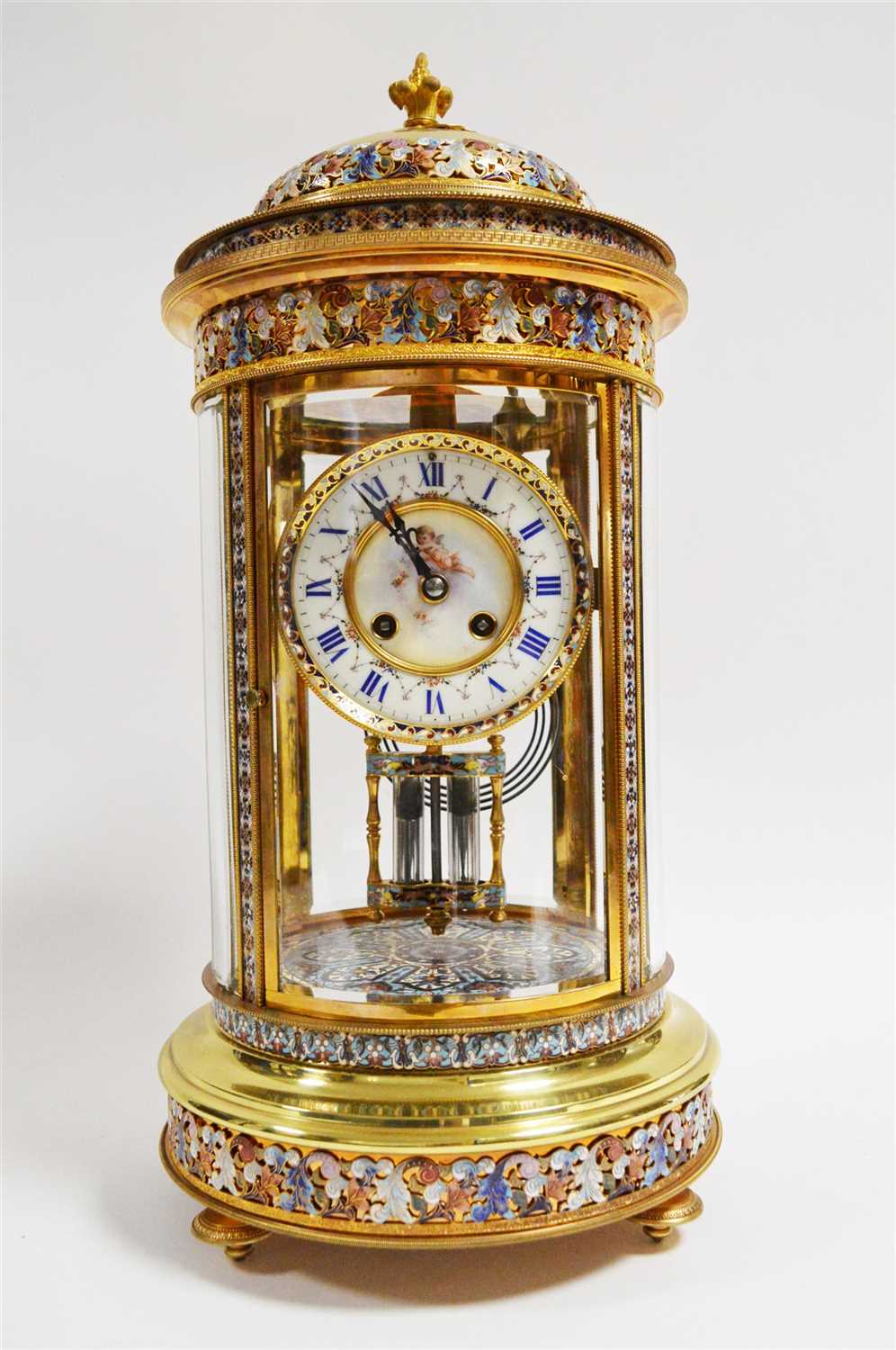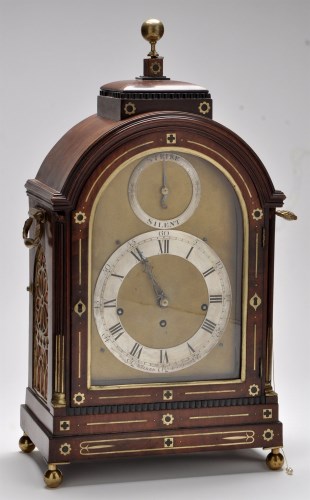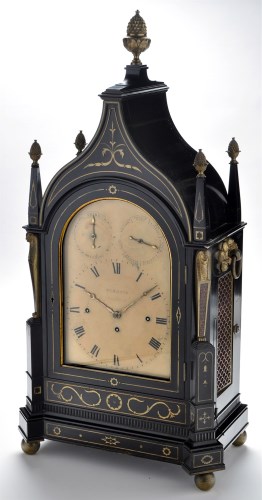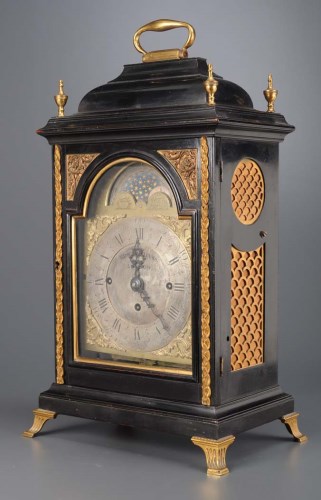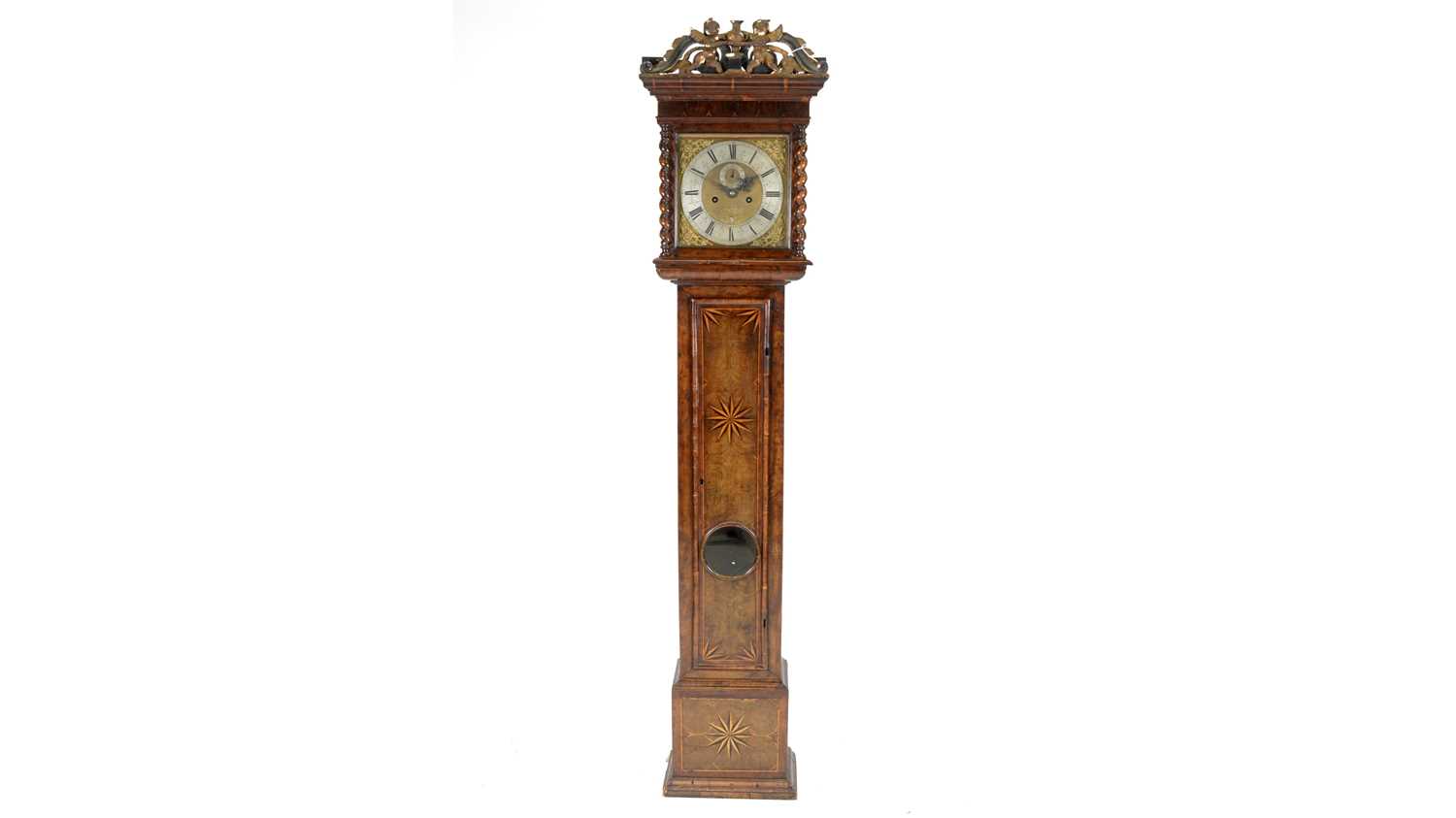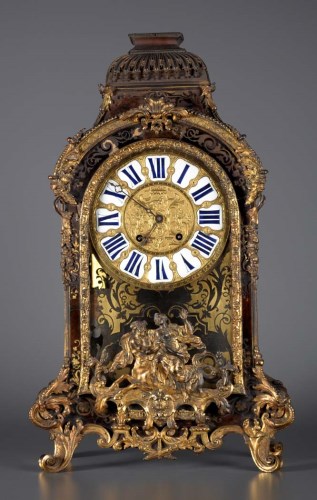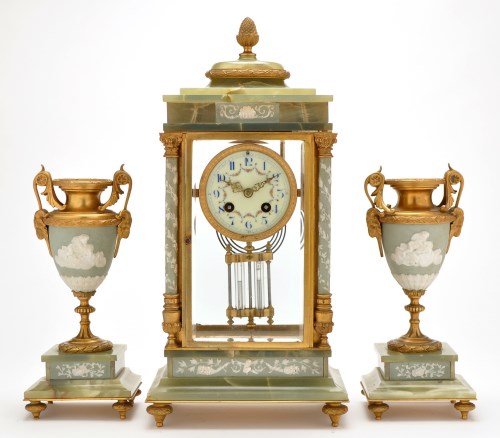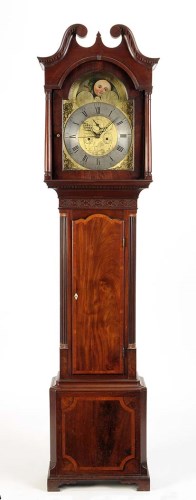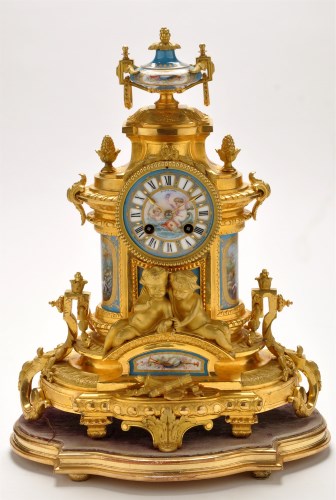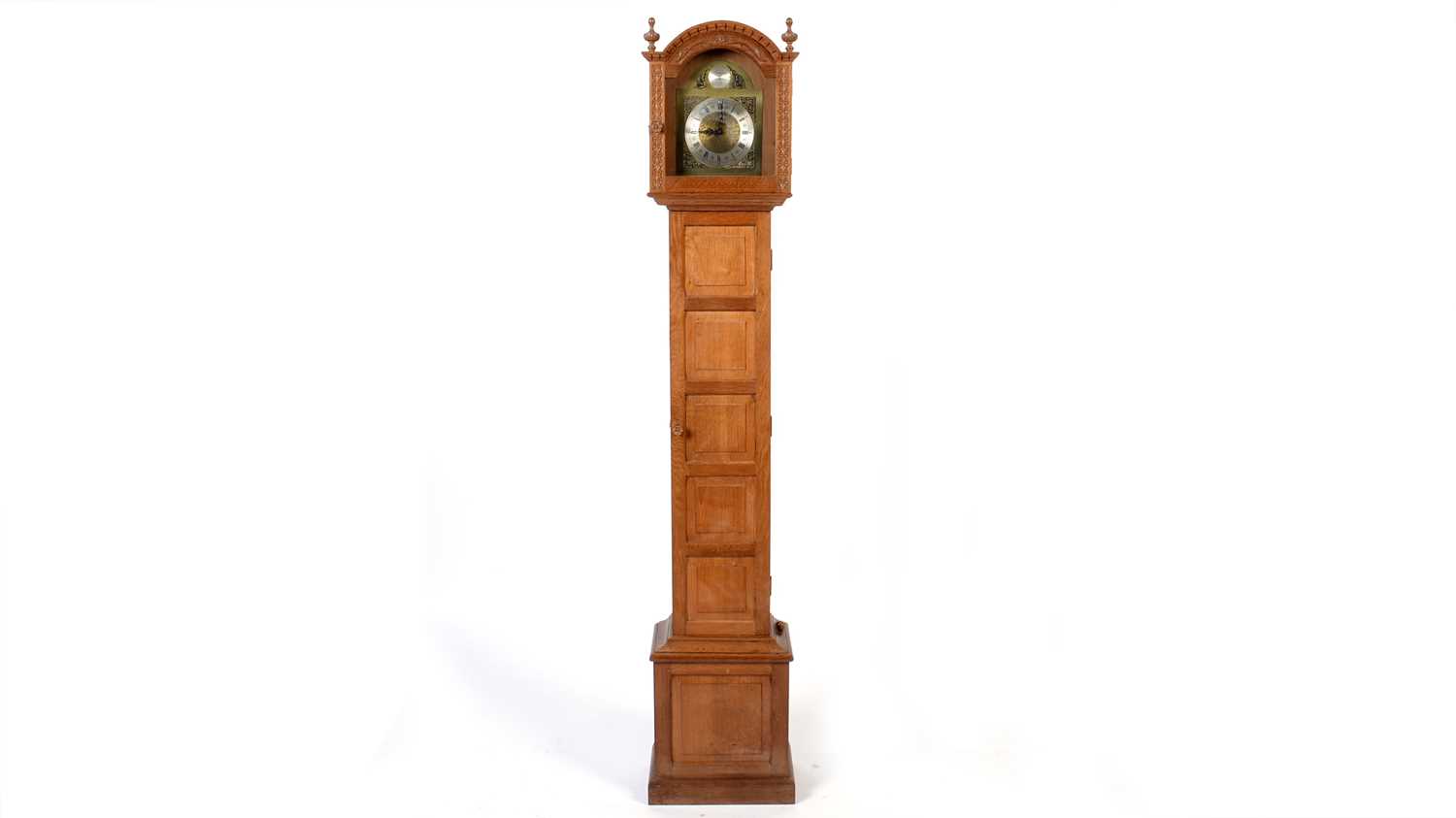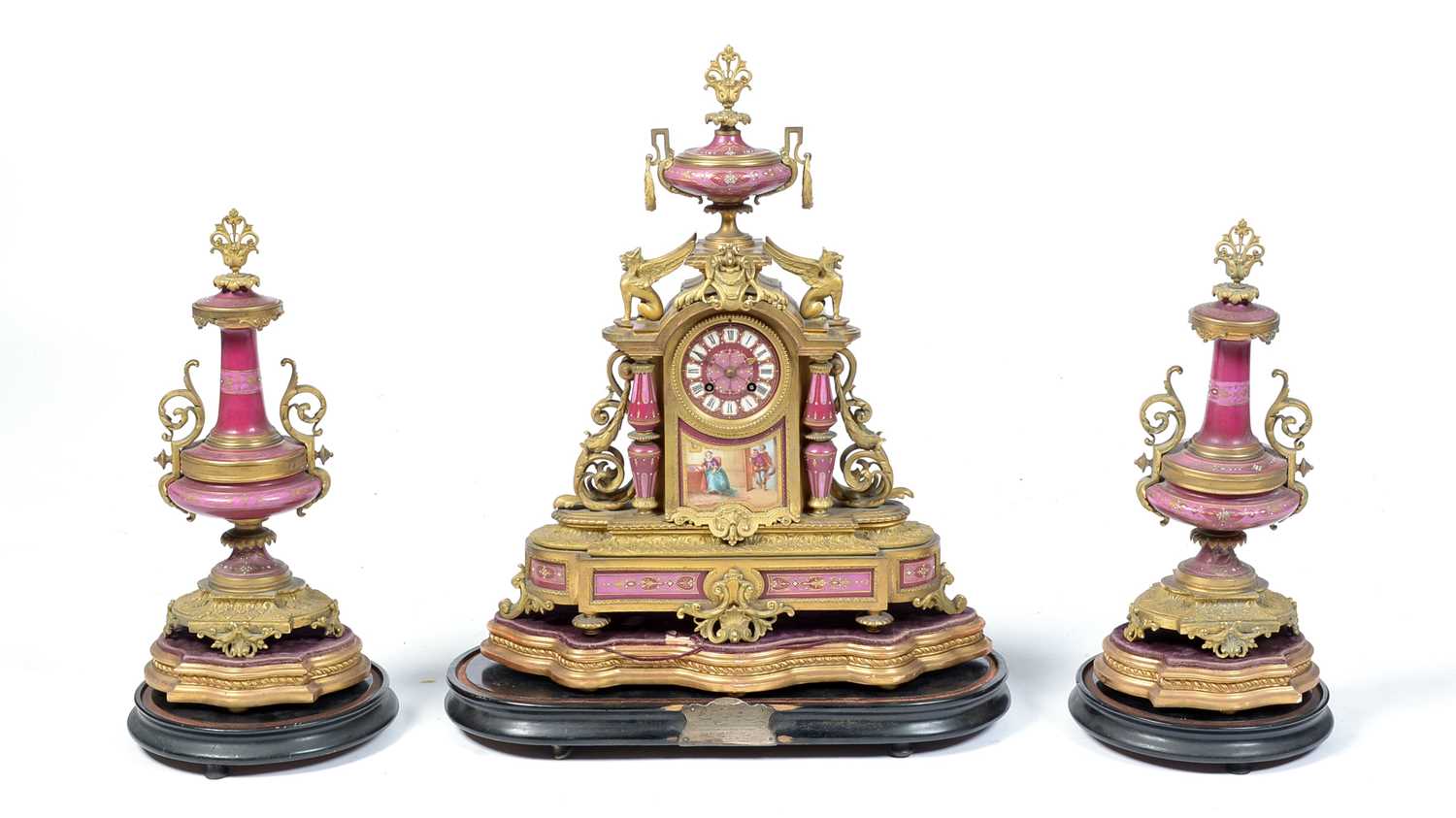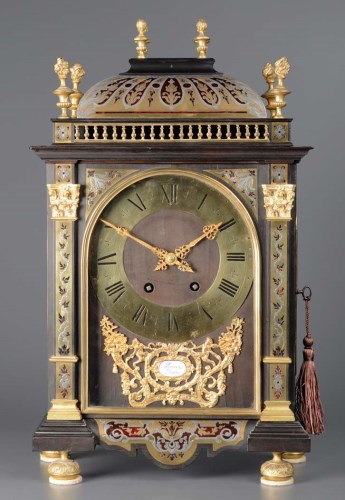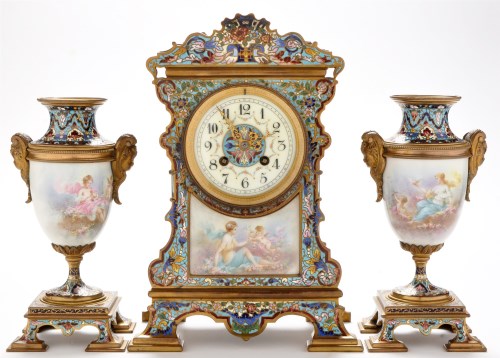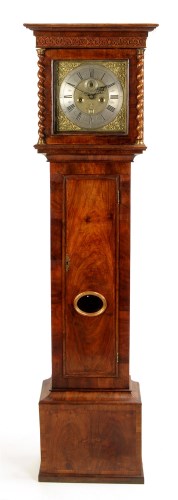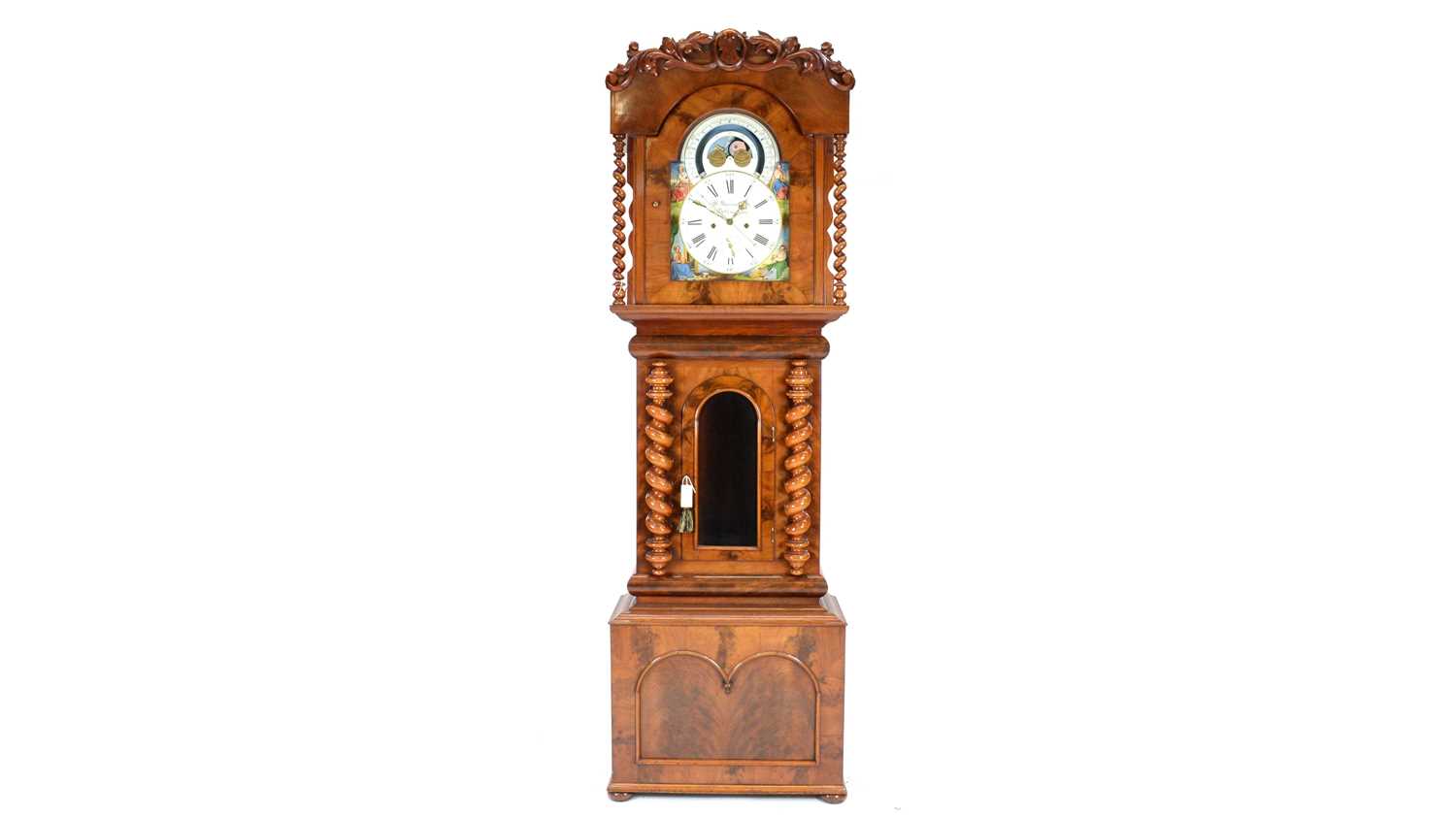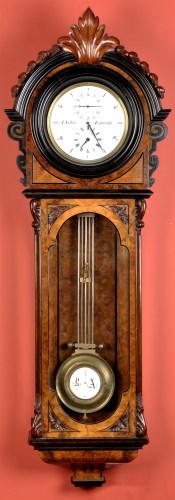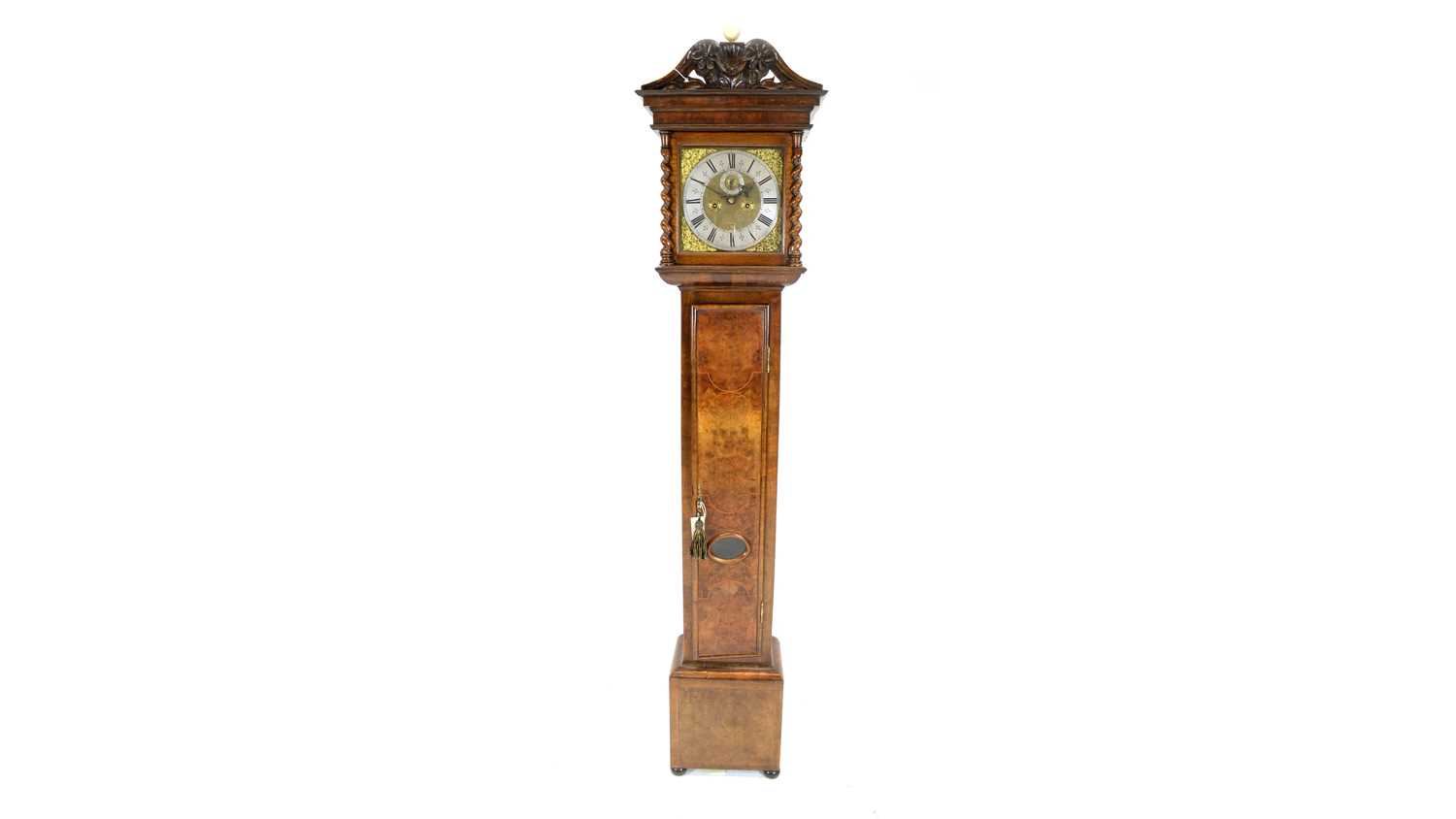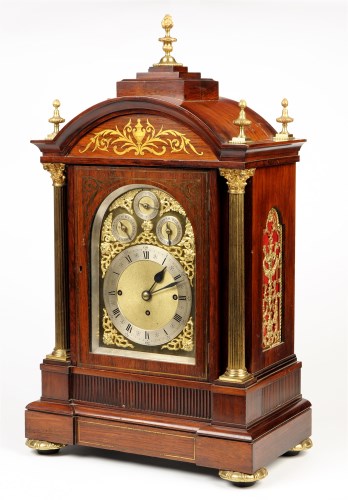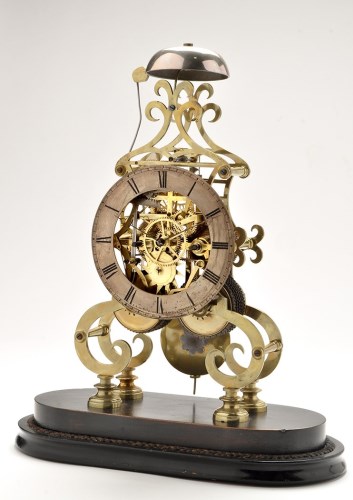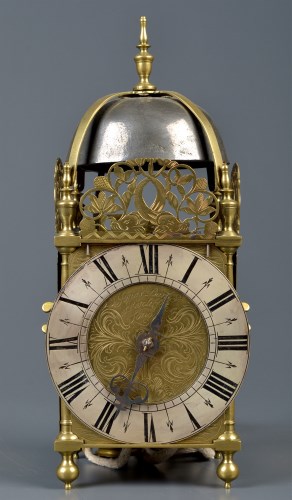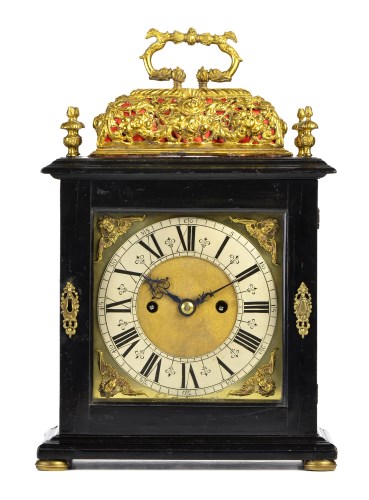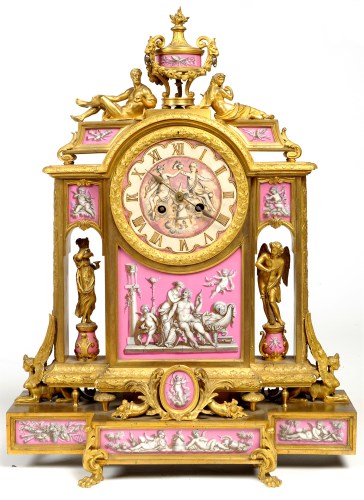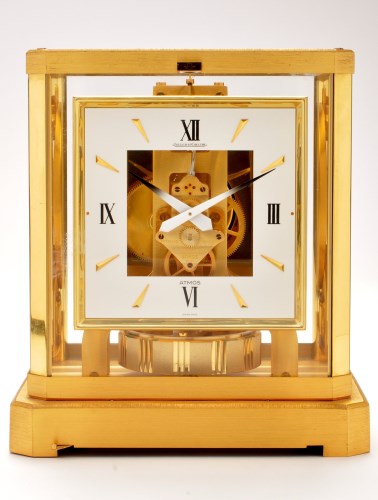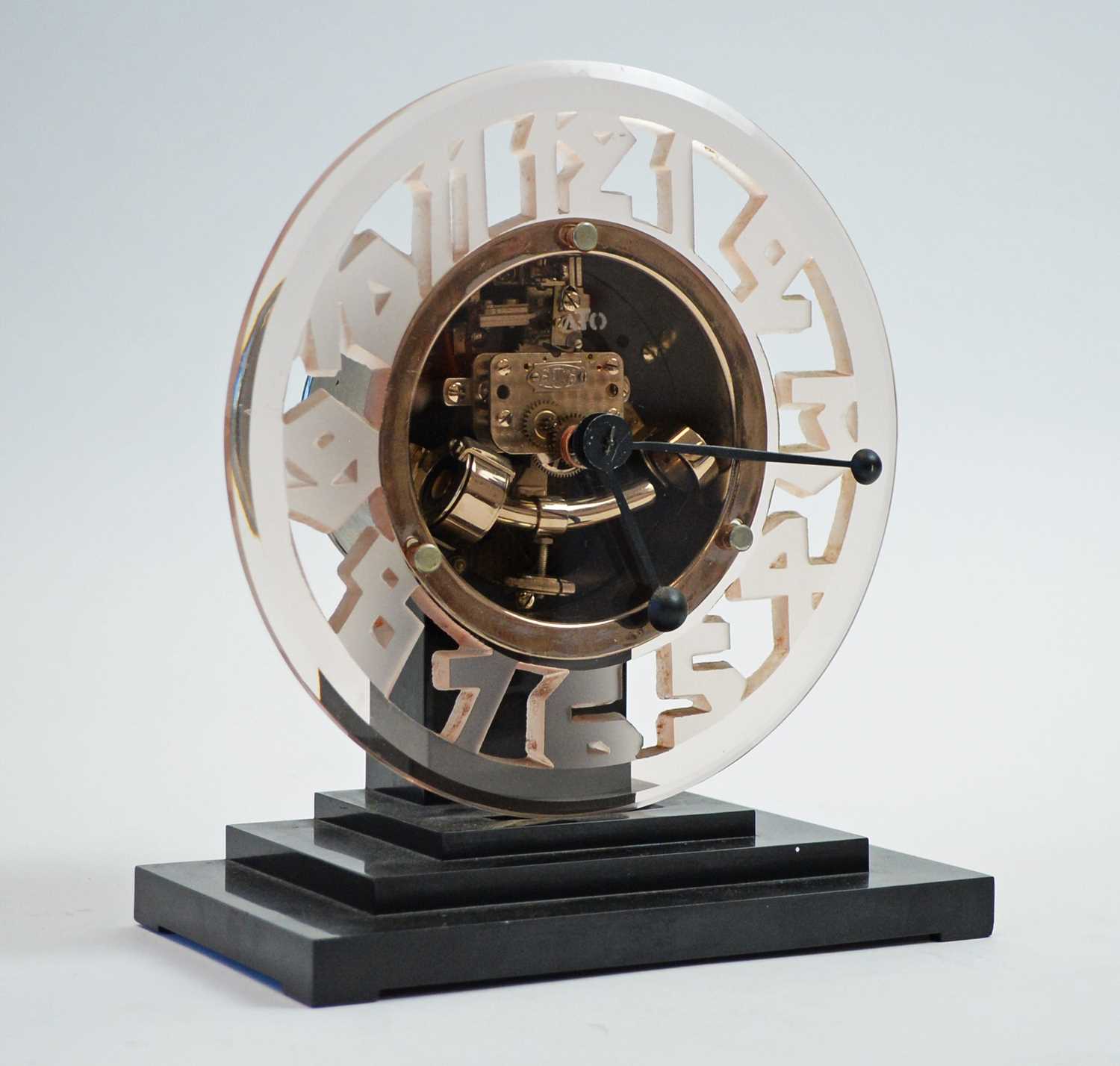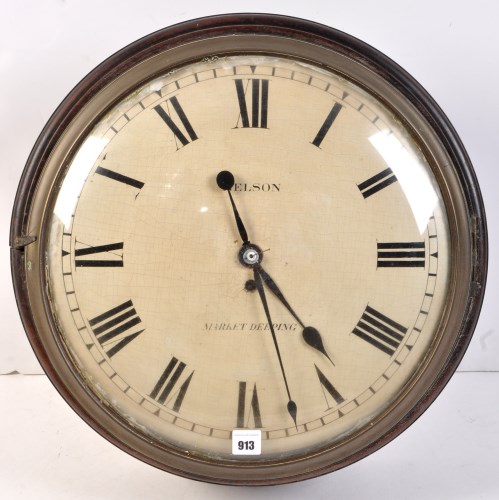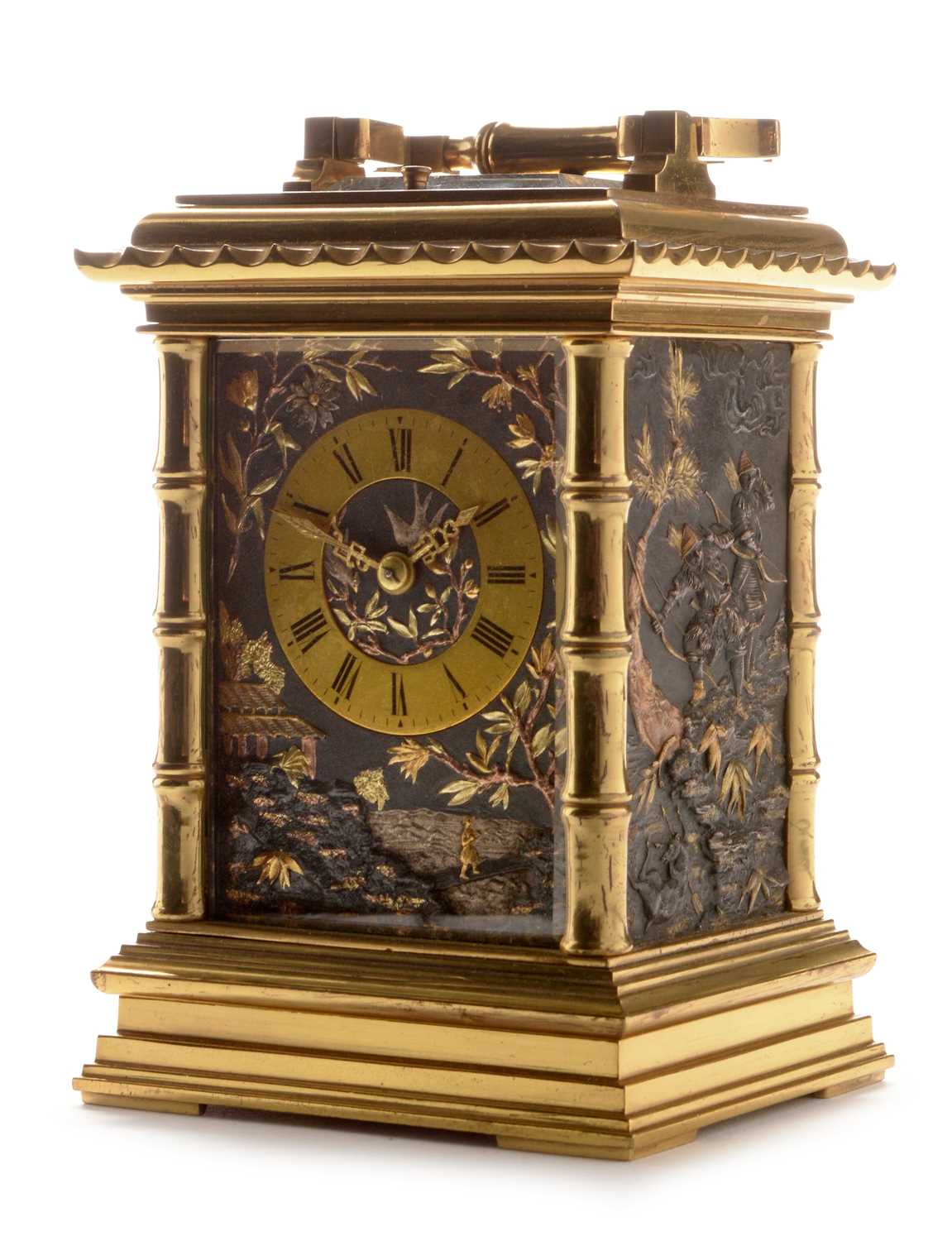Sell your Carriage Clock.
Valuations of Carriage clocks.
The first carriage clock was made by Abraham-Louis Breguet for Napoleon in 1812. The invention of the platform escapement allowed them to be portable, unlike larger mantel and bracket clocks with pendulums, which needed to be re-set every time they were moved. The platform escapement was self starting, so if the clock was knocked or shaken and the wheel stopped, it would automatically restart again without the need for resetting.
Further development in France enabled mass production began towards the middle of the 19th Century. Spring driven, their cases were predominantly made of brass or gilt brass, with the sides and top inset with glass panels, or more rarely porcelain. Because of their association with Napoleon and the military they became known as ‘pendule d’officier’ or ‘officers’ clocks’.
Their popularity soon spread to other European countries like Britain and Germany.
Later in the 19th Century cases became more ornate and the shapes varied enormously. Because they were fragile by nature, they often had wooden cases with leather coverings. Unfortunately the cases bore the brunt of any knocks or scrapes during transportation, so they rarely survive in pristine condition. In many cases they become so damaged they are discarded. Clocks with their original cases are more sought after.
The golden period for carriage clock production was around 1860 through to the start of World War One.
Until the latter 20th Century, Carriage clocks were often popular as work retirement gifts, however, this practice is less common today.
We sell hundreds of Carriage clocks every year. Finer examples are sold in our dedicated clock sales held three times a year. Clocks of more modest value are sold in our fortnightly Town & County sales.
If you have a clock that you’re considering selling, please contact us on 0191 430 3000 or email info@andersonandgarland.com to arrange a free pre-sale valuation with one of our specialists.

Richard & Co: a brass and porcelain mounted repeating carriage clock
Sold for £1,700

Drocourt: a late 19th Century engraved gilt brass striking and repeating alarm carriage clock
Sold for £1,400
Upcoming Auctions

Fine Asian Art Auction

